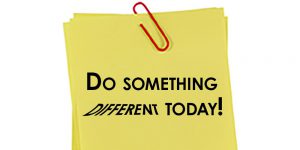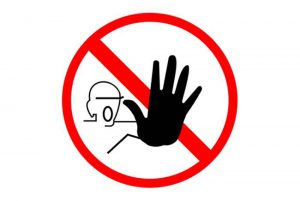How well do you manage disagreement?
Disagreements are inevitable
Disagreements are going to happen from time to time, no matter who you are or what your role is. There is no such thing as a disagreement-free organisation! For instance, a survey conducted for the American Management Association found that managers reported spending around 18% to 26% of their time dealing with disagreements that, poorly handled, had spiralled down into conflict, eroding teamwork and damaging results. That’s a huge investment of time! As we’ve seen over and over with our clients, even quite modest improvements in managing disagreement can deliver significant productivity gains, while increasing employee satisfaction and wellbeing.
The fact is, if you want to have a healthy team and a healthy organisation, you’re going to need a certain amount of disagreement. Challenge, dissent and argument can lead to breakthrough thinking and minimise the risk of bad decisions. These days, the complexity of the issues facing most teams elevates the importance of robust questioning. In this context, unsurprisingly, the ability to disagree constructively is now seen as a vital professional skill. In other words, disagreeing with your colleagues at times isn’t the problem but how you handle those conversations might be!
The shadow side of disagreement
We define disagreement as task-focussed dissent, whereas conflict typically has more of an interpersonal focus, or even a clash with some degree of emotion involved. This distinction matters because it highlights the business function of disagreement and liberates you from any (false) sense that it’s necessarily a ‘bad thing’.
But research shows that poorly managed disagreement can quite rapidly descend into conflict. Conflict saps energy, derails projects and poisons relationships, sometimes irretrievably. Organisations can have long memories too! Colleagues might forget who was right and who was wrong. But they’ll remember that there was an unpleasant mess a while back and that you were somehow implicated!
However, that doesn’t mean you should simply sidestep any disagreement, in an effort to stay in everyone’s good books. As well as depriving your team of a business-critical insight you might have contributed, there’s generally a personal cost. Unexpressed and unaddressed disagreements can simmer away, leading to the kind of resentment that will almost certainly contaminate future interactions. Things can even boil over later after some slight provocation, nothing to do with the original issue. All this will exact a heavy toll of stress, making it hard for you to feel happy at work. A better way forward involves learning some disagreement skills.
Types of disagreement
In our studies of teams, certain types of disagreement appear most often. These relate to task, process and status, with relationship issues occurring at times as well. Of course, many disagreements in a team involve multiple issue types. For example, disagreements about the best success metrics or the exact deliverables of a task can easily segue into challenging how decisions are being made or who should be consulted. Over and again, we see that when a team can manage their disagreements well this leads to better understanding of each other’s needs, preferences and perspectives and thus improves relationships. Such teams are also able to align each person’s efforts with agreed objectives which now have everyone’s backing and buy-in.
Developing options
When the disagreement in your team concerns a complex or non-routine matter, collaborative problem-solving will deliver better decisions and it will also strengthen relationships among team members. Collaboration enhances learning and builds trust. Researcher Kathleen Eisenhardt and her colleagues at Stanford found that the most productive teams were able to work through disagreements to benefit the task, without getting involved in potentially destructive interpersonal conflicts. Effective teams, they found, had a range of skills centred on deep listening that enabled them to use their disagreements as a springboard for better thinking.
In contrast, when Sidney Finkelstein, at the Tuck School of Business, studied bad strategic decisions made by teams, he found that such teams had stifled disagreement, allowed poor quality thinking to dominate and then ignored the evidence when things started to go wrong.
Learning how to disagree without antagonising, how to accommodate without looking weak, how to let an issue go without being evasive and how to hold your ground when you need to – these skills will help you keep team disagreements in the productive zone. At the heart of it, is whether you can genuinely listen to other people’s views. This deep listening involves your ability to identify potential synergies and see how multiple perspectives might improve the team’s thinking – and thus the quality of your decisions.
Disagreement styles
Inevitably, your personality, your background and your life experiences will all affect your automatic reactions to team disagreements. Your aim should be to develop a repertoire of styles that you can draw on to suit a particular context, rather than being restricted to one default style that may or may not be appropriate or effective. The box at the side gives you some questions to support your reflection.
PRACTICAL IDEAS TO APPLY IN YOUR BUSINESS
What’s your preferred disagreement style?
- I like to prioritise harmony and positive relations.
- I can accept offending some people, if I want to disagree.
- I don’t like disrupting team agendas and dynamics by voicing a disagreement.
- I feel irritated when someone disagrees with what everyone else is saying.
- I think we should be direct and honest at all times.
- I often try to smooth things over and side step dissent.
- I don’t like feeling I might have upset other people.
- I believe it’s important to argue strongly for my views.
- I rather enjoy a good argument in the team – it’s energising.
The above statements reflect two ends of a continuum: avoiders at one end and seekers at the other. Ideally, you can flex your style to suit the context!



